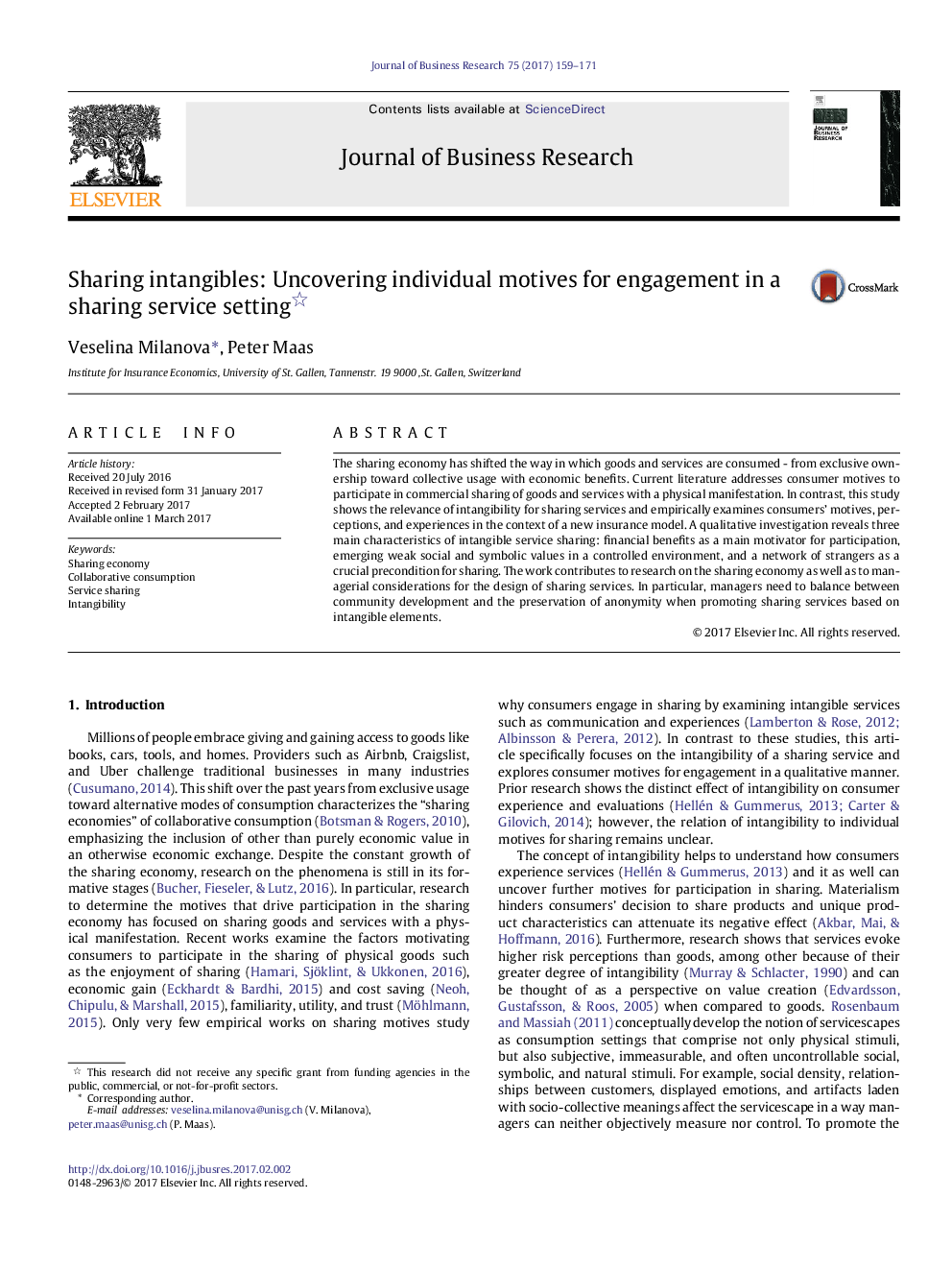| Article ID | Journal | Published Year | Pages | File Type |
|---|---|---|---|---|
| 5109464 | Journal of Business Research | 2017 | 13 Pages |
Abstract
The sharing economy has shifted the way in which goods and services are consumed - from exclusive ownership toward collective usage with economic benefits. Current literature addresses consumer motives to participate in commercial sharing of goods and services with a physical manifestation. In contrast, this study shows the relevance of intangibility for sharing services and empirically examines consumers' motives, perceptions, and experiences in the context of a new insurance model. A qualitative investigation reveals three main characteristics of intangible service sharing: financial benefits as a main motivator for participation, emerging weak social and symbolic values in a controlled environment, and a network of strangers as a crucial precondition for sharing. The work contributes to research on the sharing economy as well as to managerial considerations for the design of sharing services. In particular, managers need to balance between community development and the preservation of anonymity when promoting sharing services based on intangible elements.
Related Topics
Social Sciences and Humanities
Business, Management and Accounting
Business and International Management
Authors
Veselina Milanova, Peter Maas,
